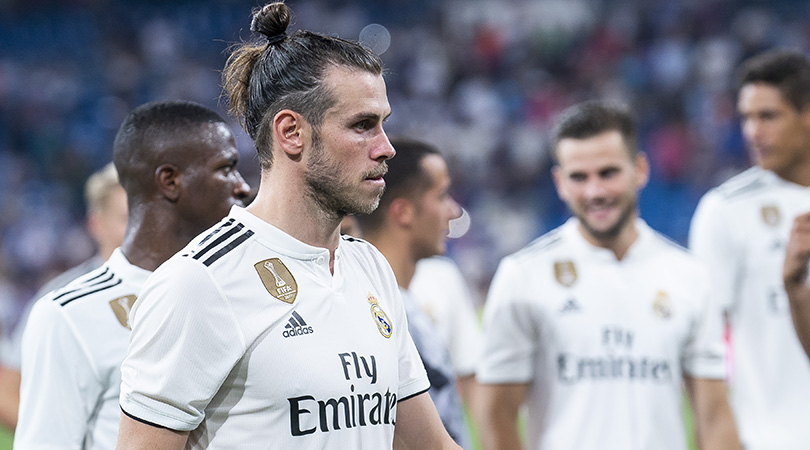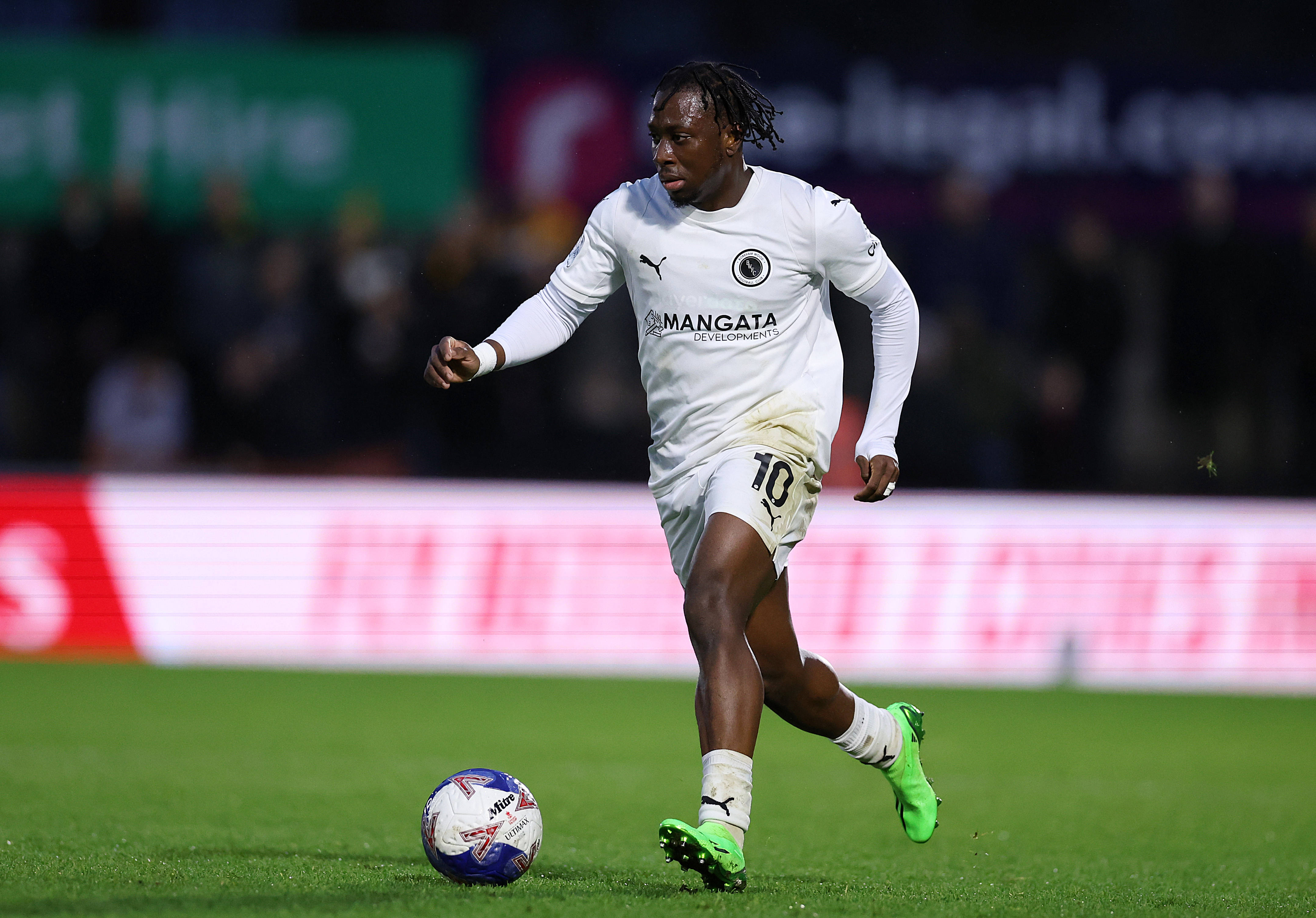How Barcelona lost their touch with the world’s best young players
They were once the finest club in the world for developing talent, but now Barça's brightest hopes are leaving for better opportunities elsewhere. The tables have turned with Real Madrid, writes Thore Haugstad
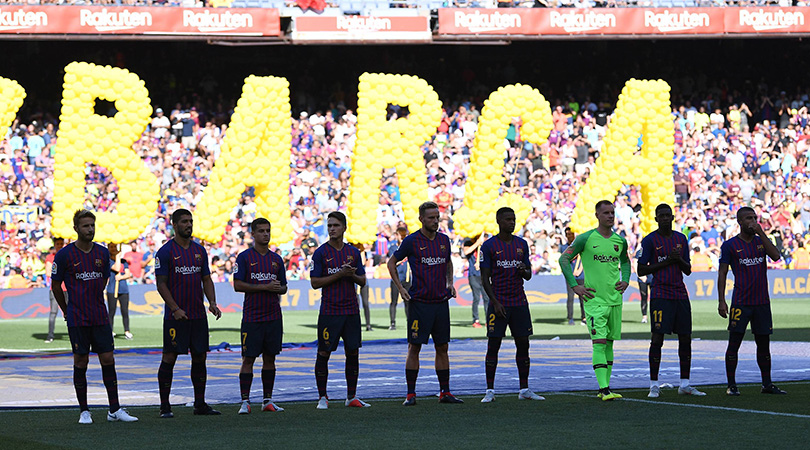
The best features, fun and footballing quizzes, straight to your inbox every week.
You are now subscribed
Your newsletter sign-up was successful
Want to add more newsletters?

Five times a week
FourFourTwo Daily
Fantastic football content straight to your inbox! From the latest transfer news, quizzes, videos, features and interviews with the biggest names in the game, plus lots more.

Once a week
...And it’s LIVE!
Sign up to our FREE live football newsletter, tracking all of the biggest games available to watch on the device of your choice. Never miss a kick-off!
Join the club
Get full access to premium articles, exclusive features and a growing list of member rewards.
When Barcelona kick off their league campaign on Saturday, it’ll be eight years to the day since Catalan newspaper Sport ran the front page headline: CANTERA CONTRA CART€ERA. That summer, Spain had beaten Holland in the World Cup final with seven Barça academy graduates. Come winter, Lionel Messi, Xavi and Andres Iniesta stood on the Ballon d’Or podium – the first time that the top three had come from the same youth system.
The Sport cover translates as ‘youth academy versus wallet’ and referred to Real Madrid. Florentino Perez was a year into his second stint as president and had already signed Cristiano Ronaldo, Karim Benzema, Xabi Alonso, Kaka, Angel Di Maria and Mesut Ozil. The Madrid academy hadn’t produced a star since Iker Casillas. Everybody knew what Sport were saying: where Barça developed talent, Madrid had to buy it.
But things have changed. Barcelona haven’t produced a homegrown superstar since Sergio Busquets, who made his debut 10 years ago, while Madrid have signed a series of Spanish talents. Since the summer of 2012, Barça’s net spend on players is £360m – Madrid’s is £28m. Somehow, the roles have been reversed.
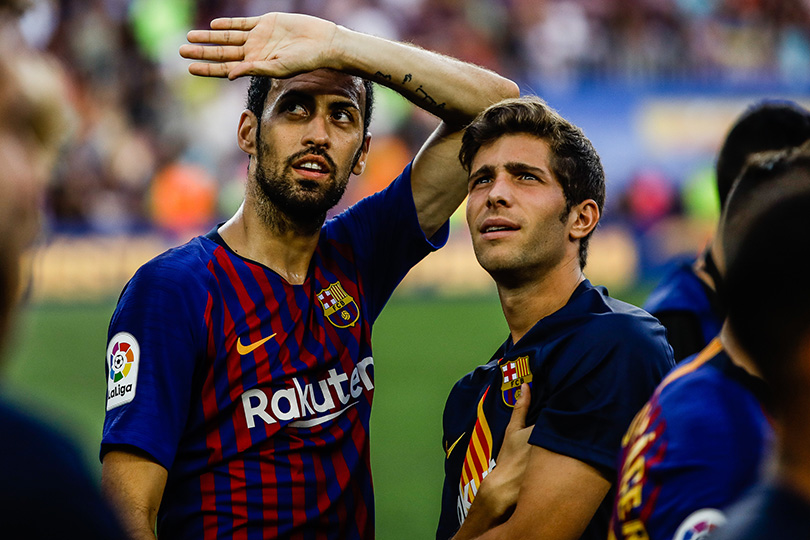
Give them a chance
And all this has happened under Perez, the architect of the galacticos. Perez grew up watching Madrid spend big in the 50s and '60s, when they won five straight European Cups, but he has now swapped established stars with domestic youth – all while Barça are doing the opposite.
The pride of La Masia, as the Barça academy is known, is a reliance on technique over physique; an ethos that helped develop players such as Xavi, Iniesta, Carles Puyol and Victor Valdes. Yet none would have progressed as quickly as they did had Louis van Gaal not handed them debuts. The same applied to Messi, Busquets and Pedro, who made their bows under Frank Rijkaard and Pep Guardiola during the presidency of Joan Laporta, a champion of the academy. For talent to blossom, a belief in youth had to be present at the very top of the club.
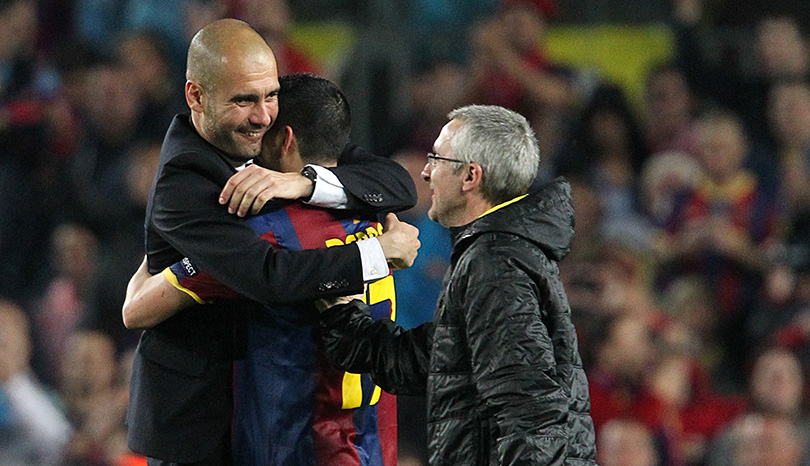
Proving that were Madrid, who had become a dead end for youngsters. Only occasionally had a first-team coach had the bravery to play kids, such as when Jorge Valdano promoted Raul and Guti in the mid-90s. Otherwise, most coaches felt too much at risk to prioritise youngsters, who duly went elsewhere.
The best features, fun and footballing quizzes, straight to your inbox every week.
Back in 2010, Guardiola made the point that Barça didn’t actually produce bigger talents than Madrid. “The difference is that here we put them in the first team,” he noted.
Damaging message
Or at least they used to. When Guardiola resigned in 2012, the job went to Tito Vilanova, a fellow academy graduate – but when he stepped down a year later due to ill health, the link between the first team and academy vanished. With Laporta gone, Barça hired Argentine coach Gerardo Martino, then Luis Enrique. While both played attacking football, neither had come through the academy.
Yet while Luis Enrique was criticised for not promoting youth, the tone has been set by president Josep Maria Bartomeu and his directors. Over the last three years Barça have bought Lucas Digne, Arda Turan, Andre Gomes, Aleix Vidal and Paco Alcacer for a combined £120m. All have blocked the road for youngsters. All have flopped.
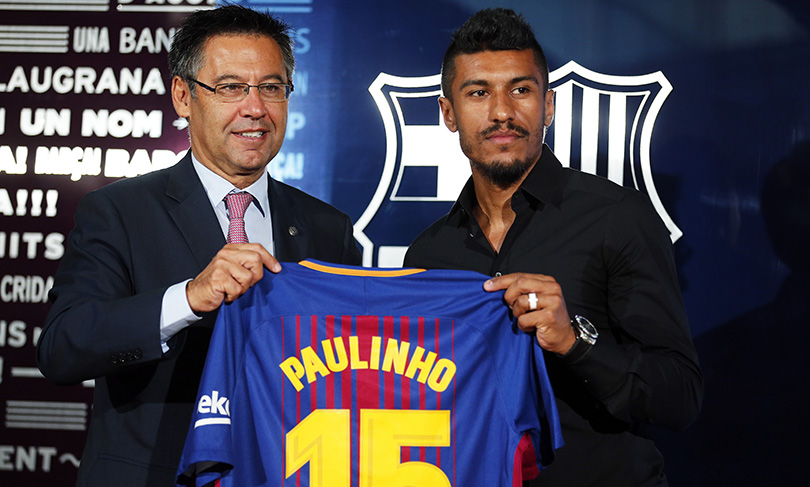
Not all of these names have been better than what Barcelona had in their academy, and some of the candidates who rivalled Bartomeu in the 2015 presidential elections have highlighted the decline of La Masia. Toni Freixa noted that the number of homegrown players had been sliced in half in just three years. “This is an inexorable trend that makes the club just like any other,” he said.
Yet little has changed. Last year Barça bought Paulinho, a slap in the face for La Masia hopefuls. This summer the Brazilian has left, but the club have signed Arturo Vidal, who is 31. The message to the academy is hardly one of promise – and so the talents are leaving.
Leaving La Masia
For a while this looked like a small loss for Barcelona, as the players leaving hadn’t made the first team anyway. But now they’re bolting at 16 or 17, often through clauses in their contract. Only last summer, star winger Jordi Mboula (below) left for Monaco, while Eric Garcia – the 17-year-old centre-back described as the new Gerard Pique – joined Manchester City. Garcia’s agent is Puyol. Even Barça’s own legends appear to be advising youngsters to leave.
This summer more players have left, among them left-back Joel Lopez (Arsenal), midfielder Robert Navarro (Monaco) and Spain U16 striker Pablo Moreno (Juventus), who scored 200 goals in five years at the academy. The 17-year-old winger Sergio Gomez has joined Borussia Dortmund. At the U17 World Cup last year, Gomez was voted the second-best player of the tournament.
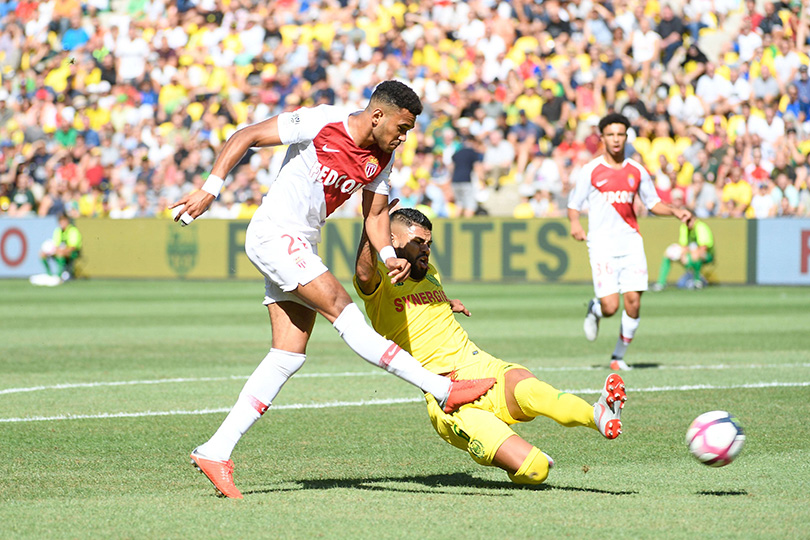
And just as Barça are losing talent, Madrid are recruiting it. While Perez has curbed spending, he has also handed fringe roles in the first-team squad to academy graduates or youngsters, often after they’ve spent a season or two on loan – the prime example being right-back Dani Carvajal. Over the last few years, Madrid’s starting line-up has almost been too strong to improve. Perez has realised it and brought in younger talents instead.
Since 2014, Madrid have secured Marco Asensio; surely a future Ballon d’Or candidate, who went to the capital because Barça refused to pay Mallorca the whole £3.15m fee at once. Madrid have also bought centre-back Jesus Vallejo, left-back Theo Hernandez and playmaker Dani Ceballos. This summer they added right-back Alvaro Odriozola. All are young and Spanish.
To top that off, Perez has now hired Julen Lopetegui, the coach behind Spain’s victories at the U19 and U21 Euros in 2012 and 2013 respectively. When Lopetegui left the Spain youth team role in 2014, his successor was Albert Celades – now his assistant at Madrid.
The set-up seems ideal for guiding domestic talent into the first team. Eight years since Sport ran that headline, things could hardly be more different.
 Join The Club
Join The Club





